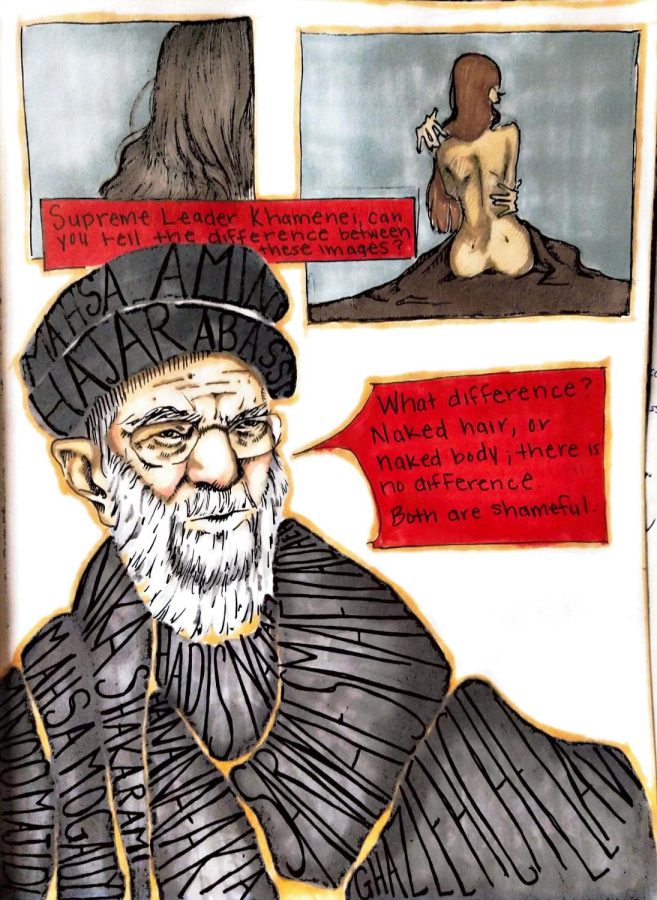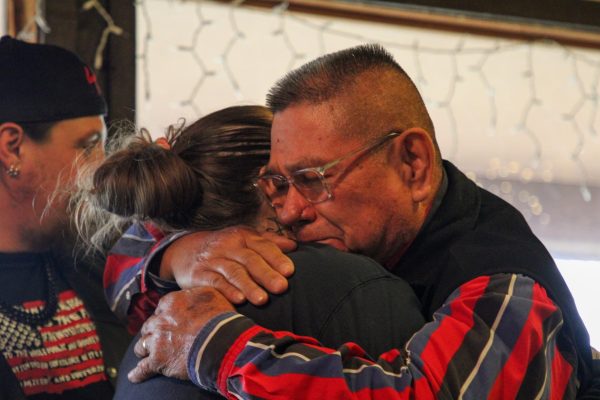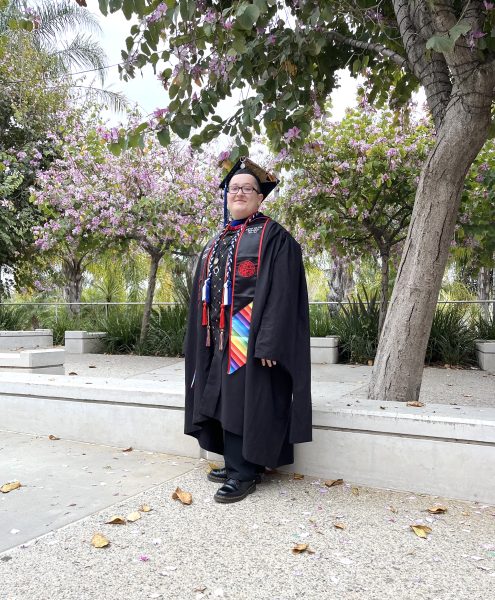Vigil held for Iranian woman
Illustration
November 12, 2022
On Sept. 13, Mahsa Amini, a 22-year-old Iranian woman was taken into custody by Iran’s “morality police” — the Iranian police unit in charge of enforcing dress code laws and policies.
They accused Amini of violating the country’s requirement for all women to cover their hair when in public. She was taken by police to be educated on how to properly wear a hijab. Amini was dead within days.
According to an article published by the Center for Human Rights in Iran, Amini’s father claimed that, “Everything they have said and shown is lies,” in reference to the Iranian government.
Nayereh Tohidi — CSUN professor emerita, former chair of the Department of Gender and Women’s Studies, and the founding director of the Middle Eastern and Islamic Studies — was a speaker at the vigil held in honor of Amini that took place on Sept. 27.
“The ruling regime has tried to come up with a uniform dress code for every woman, but they have failed in that because women have been defiant, women have resisted from the first day,” Tohidi said.
“The morality police have been harassing women everyday on the streets; they check women’s dress code, they arrest them, they humiliate them, they verbally attack them, physically attack them,” Tohidi continued. “It is humiliating if somebody tells you everyday because you’re a woman you should put something on your head to not show your hair.”
In a statement published by the United Nation Human Rights Organization on Sept. 22, 2022, the authors demanded accountability for Amini’s death, and called for an end to violence against women. The statement read, “Iran must repeal all legislation and policies that discriminate on the grounds of sex and gender, in line with international human rights standards.”
Tohidi claimed the gender ideology that the Iranian government imposes is similar to how political figures in other countries control women.
“Iranian government is not that different from the Taliban when it comes to its gender ideology. Some very conservative politicians in the U.S. too are still obsessed with women’s bodies and control of women’s reproductive rights and sexuality,” Tohidi said. “The fundamentalists in all religions are dictators that want to deprive women and youth from their bodily autonomy. They also instrumentalize human rights when it serves their interest. They have double standards.”
People in Iran are not only fighting against the mandatory hijab, according to Tohidi.
“The majority of people, female and male, have been suffering from discrimination, economic hardship, rising unemployment, environmental deterioration,” Tohidi said. “They are fed up with this repressive, incompetent and corrupt theocracy, and want to replace it with a secular and democratic system.”









